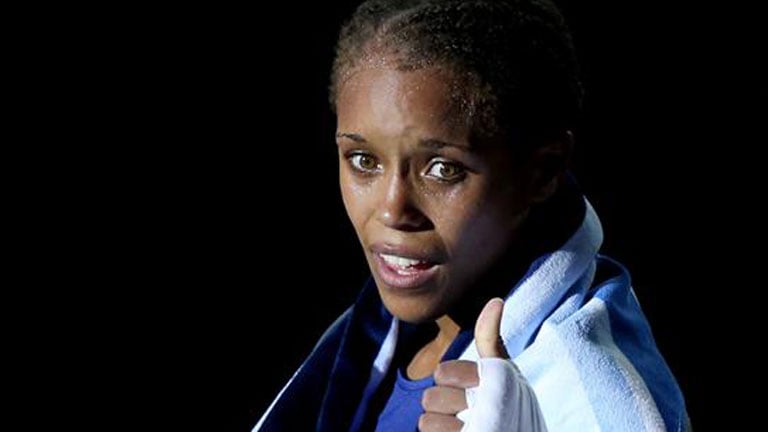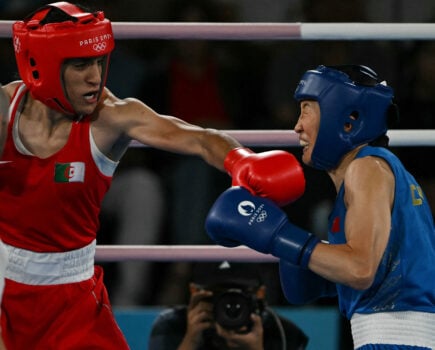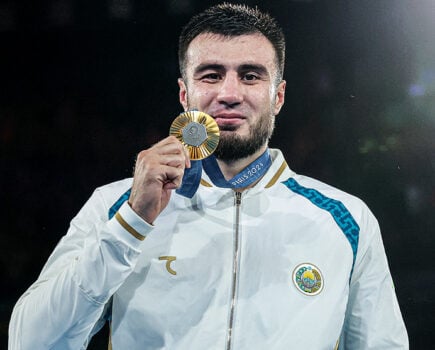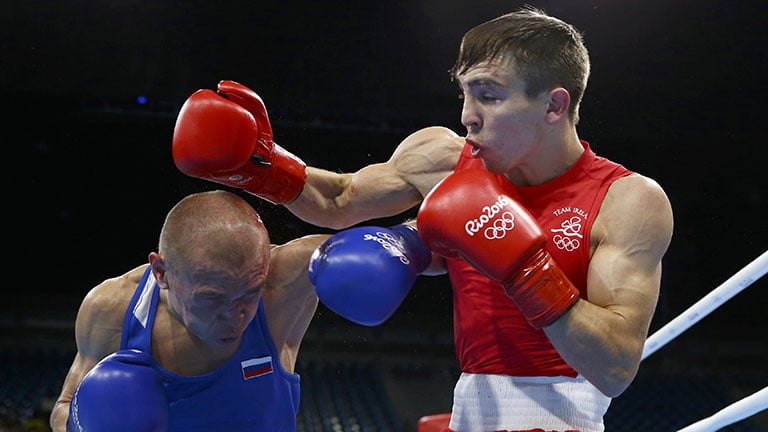By Steve Bunce
I SAT with two Olympic dreamers 10 days before the first bell in Paris.
It was Callum Smith and Tasha Jonas, and the venue was an outdoor bar in Liverpool’s Baltic Triangle.
They had the same dreams at the same time, and they had been dreaming of boxing at the Olympics since they were kids in the Rotunda gym in the city. It is amateur boxing’s main dream.
Perhaps they had met the 1972 bronze medal winner, George Turpin, perhaps they knew John Hyland from the 1984 Olympics, and they certainly knew Beijing medal winner, David Price. Liverpool is a boxing village, make no mistake. The day after the Baltic gig, I got a message from David Burke, a real medal hope from Atlanta in 1996.
All amateur boxers have an Olympic story; they all have a memory of watching somebody box in the Olympic competition and they can remember – if they are lucky enough – the first time they saw or held an Olympic medal.
“It’s a dream to fight at the Olympics,” recalled Smith. “It’s what you want and then you start to get close and then you really want it.” Smith’s dream ended, like so many, in controversy and defeat overseas in an Olympic qualifier.
It was April 2012, and the qualifier was in Trabzon, Turkey. Smith was joined by other GB hopefuls, Anthony Ogogo, Josh Taylor and Sam Maxwell. It was a gruelling routine for all of them and it was cruel, an uneven schedule. At some weights four went through and at other weights just two.
Smith won three times in four days to reach the semi-final. Ogogo and Taylor were with him; Taylor lost in the semi-final but still qualified and Ogogo reached the final. Later that summer, Ogogo would win three times, lose in the semi-final and win a bronze medal. Ogogo is now the new king of the wrestling ring.
In Smith’s second bout, he easily beat Bosco Draskovic from Montenegro, and then cruised past Hungary’s Imre Szello to reach the semi-final and a fight with Azeri, Vatan Huseynli. At this stage, Ireland’s Joe Ward was out at light-heavyweight, the victim of a dubious decision against the local fighter.
In the Baltic Triangle bar, Jonas and Smith looked at each other as the story of Olympic heartbreak in 2012 unfolded; they had been to dozens of international tournaments and knew how often the local boxer got the nod, knew how often politics denied a British boxer a medal. It was standard, normal and their look summed it up.
“You see so many bad decisions and you just don’t want the next one to be you,” said Jonas. “It’s wrong, but you expected it so often.”
In the semi-final in Trabzon, Smith lost 16-14 to Huseynli. “I won it, no doubt,” Smith said. There was nothing he could do about the scandal of the scoring. In the weeks and days before the first bell in London, everybody who was ringside in Trabzon told me the same story. Smith was shafted. It made no difference, the dream was over, the Olympics were gone. At light-heavyweight only the two finalists qualified.
Then Smith found out that Draskovic had been given some type of wild card and that he would be in London 2012.
“That was not easy,” said Smith. “It was not easy watching men that I had beaten pull on an Olympic vest.” Both Draskovic and Huseynli lost in their opening bouts in London.
Something similar happened to Jonas in 2016. She had walked away from the sport after the Commonwealth Games in Glasgow and, obviously, after boxing at the London Olympics. In the summer of 2016, Jonas was a new mum, watching the boxing from Rio and seeing so many women that she had beaten. That was her inspiration and perhaps it was the same with Smith. It was torture at the time.
“At GB [the gym in Sheffield] there are pictures of the Olympic medal winners on the wall,” said Jonas. “You look at them every single day and that is the motivation – all those fighters with Olympic medals.” I often wonder what it must be like to train and work under those giant pictures if your picture is there. Richie Woodhall does it a few days each week; Lauren Price, Galal Yafai and Karriss Artingstall do it every day. That is recognition.
I know fighters from the Seventies and Eighties, a time when winning the old ABA title was, in theory, the only way to reach the Olympics, who were in tears because they had lost on the very first step of their fantasy journey to Montreal or Moscow or Los Angeles.
The dream was Montreal, the reality was a majority decision loss in the light-heavyweight semi-final of the North East London divs at three in the afternoon at York Hall.
A hundred dreams were dashed by about the end of February every single Olympic year; the dream is more complicated now that the GB system is firmly established as the only route to potential Olympic glory. Incidentally, it is established because it works.
In the Baltic Triangle last week, as hundreds of fans queued for pictures with Smith and Jonas and a couple of their world title belts, I saw the wonder in the eyes of fans holding a championship belt for the first time.
Watching Roy Jones have about 10 belts plastered all over his body is one thing, but standing between Jonas and Smith and holding an actual belt is another thing.
At some point in late 1976, at the Cat’s Whiskers in Streatham, Terry Spinks let me hold his Olympic gold from Melbourne. I have no picture, just memories; in 2000, I went to visit Terry and held it again. That is priceless, a different type of Olympic dream, but not far removed from the one Callum Smith had when he got off the plane in Trabzon.






